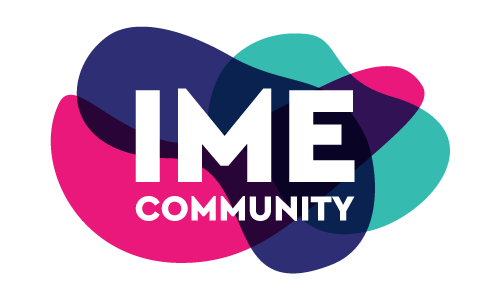LowCarb is not zero carbs! Carbs are not bad. Eating LowCarb is not restriction. You don’t have to count carbs to eat low-carb. The low-calorie and low-fat diet craze that we’ve been attached to for decades has been an epic failure and has driven the epidemic of obesity, insulin resistance, metabolic syndrome, and all of the other psychosocial and economic costs that have come along with this epidemic. Let’s drop it and our diet culture and thinking like a book.
We get to move forward with curiosity and the power of choosing for ourselves. When I started my weight loss, health transformation and life coaching journey in September, 2017, I had no clue that it was going to include a LowCarb lifestyle. I was literally “Clueless”, which is a great movie if you haven’t seen it. By the way, Paul Rudd was at KU when I was there and Alicia Silverstone is on TikTok a lot these days. Paul Rudd going to KU at the same time as me and that one time I saw Jack Black in the Orlando Airport Hotel at the elevator at 1am are my only claims to fame.
Cutting Carbs Is Not One Size Fits All
Cutting your processed carbs is not a cure all. It’s not one size fits all. You get to take an individualized approach. If you are taking medications, you will want to consult with your physician. Remember, I am not giving medical advice and I am not your doctor.
Monday Macros: What is Essential nutrition? In other words what macros do our bodies need to function?
Essential Macronutrients:
Our bodies require us to consume protein and fat to function. Protein and fat are essential nutrition for us to live. Essential nutrition means that our bodies can’t make them on their own. Studies have shown our bodies can produce glucose (energy source from carbohyrdrates) for energy even when we are not consuming carbohydrates.
A well-formulated carbohydrate-restricted diet includes adequate energy, protein, fat, vitamins, and minerals. With adequate protein and fat, the dietary requirement for carbohydrate is zero (Institute of Medicine [U.S.], 2005; Westman, 2002).
Even when no dietary carbohydrate is consumed, glucose-dependent tissues are able to utilize glucose produced through gluconeogenesis and glycogenolysis (Westman et al., 2007). Because dietary carbohydrate is not essential, it need not be a primary focus for certain therapeutic nutritional interventions.
Tuesday LowCarb LevelUp: Different levels of carbohydrate reduction Dietary carbohydrate restriction can take many forms. The term “low-carbohydrate diet” lacks specificity and has been used to refer to carbohydrate intake levels that are low only in relation to population averages and/or measured as a percentage of kcals, but do not reach the therapeutic levels of restriction referred to here.
Therapeutic carbohydrate reduction refers to dietary interventions measured in absolute amounts (grams/day) that fall below 130g of dietary carbohydrate per day, which is the U.S. Dietary Reference Intake (DRI) for carbohydrate (see Institute of Medicine [U.S.], 2005). The following definitions for levels of carbohydrate restriction are based on protocols currently in use or on definitions found in the literature:
- VLCK (very low-carbohydrate ketogenic) diets recommend 30g or less of dietary carbohydrate per day (Hallberg et al., 2018).
- LCK (low-carbohydrate ketogenic) diets recommend 30-50g of dietary carbohydrate per day (Saslow et al., 2017).
- RC (reduced-carbohydrate) diets recommend 50-130g of dietary carbohydrate per day, a level that is higher than levels listed above and lower than the U.S. DRI for carbohydrate.
- MC-CR (moderate-carbohydrate, calorie-restricted) diets recommend more than 130g of dietary carbohydrate per day with a range of 45-65% of daily kcals coming from carbohydrate (“Carbohydrate Counting & Diabetes | NIDDK,” n.d.). In most cases, kcals are also restricted to maintain energy balance or to achieve a deficit for weight loss. This dietary intervention reflects the amount of dietary carbohydrate typically found in “carbohydrate counting” interventions given to many people with type 2 diabetes.
What are Net carbs Wednesday: Definitions of carbohydrate intake levels may refer to either total carbohydrate content or to non-fiber grams of carbohydrate, as fiber is not typically metabolized to glucose. Using food labels or nutrition data, the calculation of total carbohydrate minus fiber is referred to as “net carbohydrate.” As no comparative studies of “total” vs. “net” carbohydrate have been done, clinical experience may inform which approach is best for patients.
Protein Power Thursday: In contrast to carbohydrate, protein is an essential macronutrient because essential amino acids are unable to be made by the body and need to be provided by ingested protein. Patients may choose an omnivorous or plant-based approach in order to acquire adequate protein intake.
The Recommended Dietary Allowance (RDA) intake for adults is 0.8g protein per kilogram of ideal body weight per day; however, this may be an underestimate of actual protein needs for many individuals (Layman et al., 2015; Phillips, Chevalier, & Leidy, 2016). When carbohydrate is restricted, dietary sources of protein and fat provide kcal in addition to providing the structural components of cells and tissue, therefore additional protein intake may be necessary, up to 2.0g protein per kilogram of ideal body weight. Even at levels above the RDA, protein intake on a low-carbohydrate diets typically remains within the acceptable macronutrient distribution range (AMDR) of 10-35% of kcals.
Yummy Healthy Fats Friday: Therapeutic carbohydrate restriction creates a metabolic milieu in which the body can use fat as a primary source of energy (see also 3.1). Dietary fat provides essential fatty acids and is needed for the absorption of certain micronutrients (fat-soluble vitamins A,D, E and K). Foods that contain a combination of fatty acids—including monounsaturated, polyunsaturated and saturated fats—are recommended. As it has not been clearly determined that saturated fats in foods contribute to adverse health outcomes (Forouhi, Krauss, Taubes, & Willett, 2018), foods considered to be significant sources of dietary saturated fat are not usually restricted for this intervention. However, trans fats should be avoided. Trans fats are thought to contribute to disease through a number of potential mechanisms (Remig et al., 2010)
Saturday LowCarb take-out guide: The cool thing about eating lowcarb or trending lowcarb or whatever you decide to do is that you are adding in more protein and fat and will then feel more full. Your blood sugars are stabile when eating lowcarb and you don’t feel deprived.
So, don’t worry if you are going out to eat. Many restaurants have lots of options that are actually LowCarb. Check out the menu ahead of time and remember ABC Awareness Before Choice. You’re going out for the experience and you can be assured you will eat well and feel satiated or satisfied.
Sunday keep it super simple LowCarb planning – do you want to meal prep, plan one day ahead of time? No problem. You get to choose. What works best for you and your life? Just create some constraints around the planning and don’t overconsume recipes and get overwhelmed. You don’t want to change everything up. That’s not necessary. Can you take the processed carbs and sugar out of what you usually eat for family meals and snacks? Try a LowCarb Swap like a lettuce wrap or cheese wrap and make sure you are planning for protein, fat every time you eat.
A few other talking points related to LowCarb:
Are there good and bad carbs? No, just food that serves you and food that doesn’t.
Back to LowCarb. It’s a lifestyle, not a diet. It’s simply eating quality food that serves our body. Our bodies were not made to be exposed to all of the processed carbs added to our foods.
Watch the Video Replay
Up Next: Week 10 – Self Love Superpower
Previous: Week 8 – Positive Body Image
Reverse Your Insulin Resistance Challenge Table of Contents
Week 1: Introduction
Week 2: Why Do We Overeat?
Week 3: Coping with Food Cravings and Urges
Week 4: How Much Physical Activity Is Enough?
Week 5: Social Media Friend Drama
Week 6: Get to Your Natural Weight Set Point
Week 7: Your Metabolic Health
Week 8: Positive Body Image
Week 9: Diffusing Low Carb Confusion
Week 10: Self Love Superpower
Week 11: Stress Less, Sleep More

